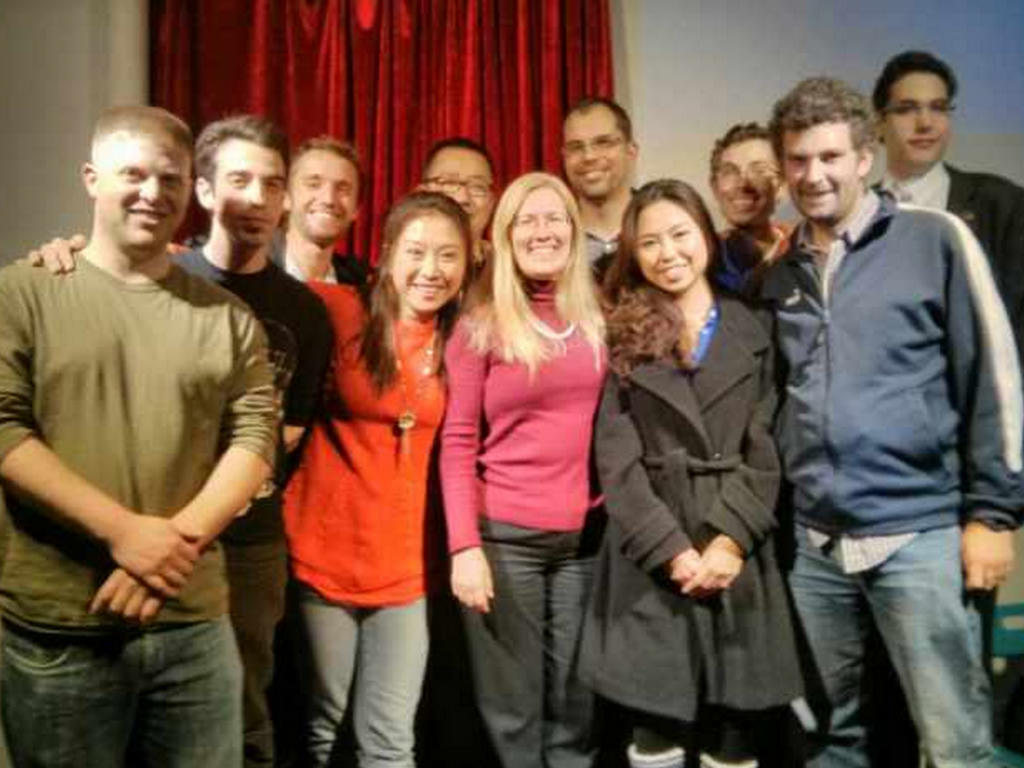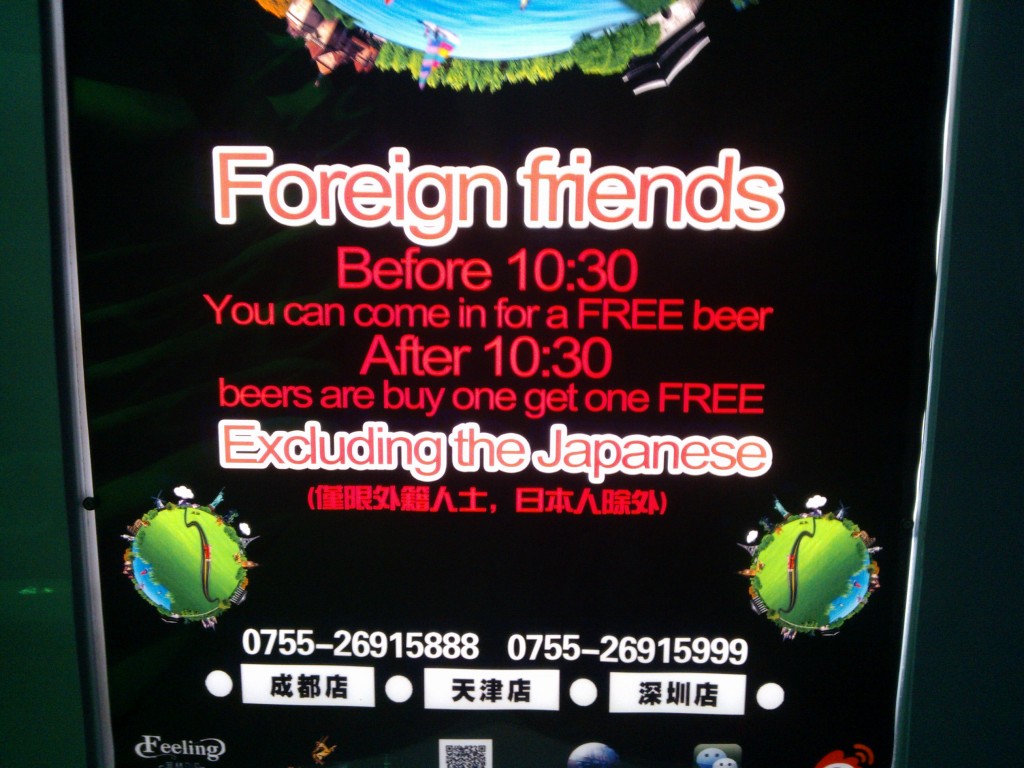Celebrating Mid-Autumn Festival In A Place With No Seasons
Posted: 09/8/2014 1:42 pmToday is a holiday in Mainland China as people around the country celebrate Mid-Autumn Festival. The holiday is celebrated by eating mooncakes with family and friends.
To mark the occasion, The Nanfang is publishing a fictional account of Mid-Autumn Festival set well into the future. It is reproduced here with permission of the author. We hope you enjoy it.
In Lunar Colony 01111001, Mid-Autumn Festival is a special time of the year. Especially so in the colony’s festive Chinatown. One of the four great holidays of the ancient Chinese tradition, for the colonists now living where Chang’e once flew, it has become the highest day of all. The irony is lost on no one.
Parades of Chang’e robots and glittering jade rabbits adorn the streets. People take a break from their mining and export duties, children have no school, and people the moon over enjoy eating mooncake.
Mooncake manufacture is a good business to be in. Wang Xing, the owner of the largest gene-splicing grain and proteinstuffs factory in the colony, and has subdivisions in lotus seed splicing as well. Yet he finds he spends most of his time in Chinatown with his family in the humble bakery where he started it all, mentoring his niece and expanding relationships with the Lunar elites.
“Guanxi is very important,” he would explain to young Xiao Yue, a first-generation Lunar and smallest of his family.
“Uncle, I’m very bored I want to play computer games!” she scoffed.
It was the night of Mid-Autumn Festival and mooncake sales were very high. A full Earth was up in the sky, and trading vessels carrying ingredients and life-giving essentials were flying in. Wang Xing had diversified investments in eggs, sugar, chocolate, and icings; vertical integration as they call it in the business community.
Many customers were Chinese, of course, the labor class and their ilk. But in a tightknit community of interlunar expats and the growing importance of Luna-themed holidays for the new culture, the bakery had a diverse cast of clientele. Mooncakes were a commodity with ever-growing popularity. One customer of particular concern was an American consulate representative, Wang Xing’s most important contact. As everyone knows, America as first flag-waver boasts official colonial sovereign power over all Luna and any influence (in business and otherwise) must be fostered through certain friendships…
“Valued customer, what would you like?” asked Wang Xing.
“Hello Mister Wang,” said the American consulate representative. “You are always so kind. A box of your finest iced cakes sir.”
“It is my pleasure, good sir.”
That was all. The American left, their brief acquaintanceship to be refurbished for another day.
“Pay attention,” Wang Xing said to his niece, “this relationship is like a seed. One day it will grow enormous fruits of wealth, of contracts and trade and untold fortunes, but in this early stage of growth only just the right amount of water and sunlight is needed.”
“What is a seed?”
“Oh my dear niece, your generation gives me worry.”
That night, the family gathered to the roof of the dome and watched the full Earth. They ate the highest quality mooncakes, and though the burning of incense was forbidden due to high oxidation, it was still as nice a Mid-Autumn Festival gathering as Wang Xing could have hoped for.
“Uncle,” asked Xiao Yue, ever precocious and curious, “why is this day called ‘Mid-Autumn’?”
“Because we celebrate the middle of Autumn, the turning of the seasons, for the sake of the farmer’s calendar. That is of the ancient calendar, which is in fact Lunar, and ties so into our peoples’ history. And we celebrate this day here on the colony because we are blessed to live in such times that we can enjoy being upon the moon itself.”
“But I still don’t understand,” she said. “What does ‘Autumn’ mean?”
He paused for a moment, and thought of what to say. “You poor youths these days. I keep forgetting. Autumn is a cyclic time on the Earth that signifies when the leaves fall from the trees, and we transition from the hot days of summer to prepare for the frigid nights of winter. The seasons change, and every year we have our accompanying rituals.”
“But what are seasons?”
“Something that only exists upon the Earth. Scientifically, it has to do with the axis of the poles in proportion to the rotation of the sun, and every revolution brings a cycle of temperature and weather patterns.”
“I see. And all the Earth has these ‘seasons’, and we here in 01111001 just follow the pace?”
“Not just the pace of the Earth. Because even what time is night and day varies across the Earth. Here in our Chinatown abroad, of course, we go by Beijing Shijian.”
At this time Xiao Yue was no longer paying attention. Apparently satisfied with the answer, she found herself distracted with video consoles. Wang Xing sat, sipped at his rice wine, and looked at the Earth, his mind filled with the memories when he was her age.
“Why don’t we have our own festivals Uncle?”
Xiao Yue pleasantly surprised him, and he suddenly awoke from his nap and turned to her. “A wise question, my niece. I presume, because we are an early culture still, we must wait for the culture to grow in its own time. For now, it is more prudent to respect the Terran past that has already been long-established.”
“Uncle, I have another question.”
“Yes, my niece.” The old uncle was infinitely patient.
“Is Chang’e real?”
“Pardon?”
“Is she real?”
“Yes I think so.”
“But how can it be that Chang’e and the jade rabbit truly came up to the moon four thousand and five hundred years ago?! I was made fun of at school, all the other kids said it is impossible! They said that was before jet propulsions, and in class they said the American Armstrong was the first in Luna. Why do we say Chang’e was here first?”
“In a sense, Xiao Yue, she is real.”
“What? But where is she now? Over in Colony 01101101, or on the dark side? Does she live in Tycho Crater? I think that would be a great hiding place!”
“Xiao Yue, she is not hiding in the Tycho Crater.”
“Oh,” she said with disappointment.
“Listen to me. There are many kinds of truths, many kinds of places. Cheng’e is true, but somewhere else.” Wang Xing smiled to her and tapped at his head. “There are scientific facts, of which you must study carefully and make good marks. And there is, in another sense, the metaphoric truth of mythology and dreams. I hope you can believe in symbols just as well. It is important. But it may take you a long time to realize this.”
“Oh.”
“Do you understand?” he asked, knowing that she probably didn’t.
Xiao Yue confidently answered, “I understand.”
———
Home page photo credit: Wheretowillie.com
















